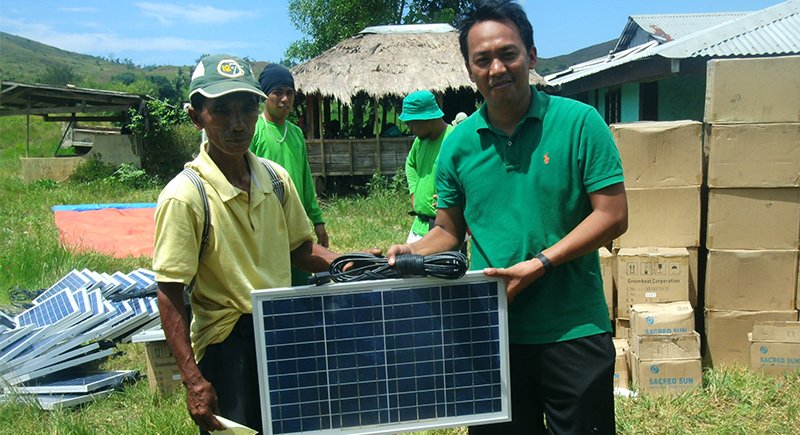
September 28, 2016 Student works to boost renewable energy in Philippines
By Maegan Murray, WSU Tri-Cities

RICHLAND, Wash. – In Elmar Villota’s home country of the Philippines, as much as 15 percent of households do not have electricity. Villota, a doctoral student in biological systems engineering at Washington State University Tri-Cities, is motivated to close that gap with renewable energy.
“A simple light bulb could make a world of difference,” he said. “Without a sustainable source of electricity, students can’t have light or read comfortably at night. Imagine how much knowledge they would miss.”

With a population of more than 100 million scattered across more than 7,100 islands, the Philippines faces the challenge of extending power to everyone, he said.
“In the Philippines, we are end users in terms of technology,” Villota said. “Historically, we have purchased technology rather than making or innovating it ourselves for our own use.”
Renewable energy, he added, could help address the nation’s sustainable energy concerns and stimulate technological growth.
Turning biomass into fuel, other products
As part of the Engineering and Research Development for Technology scholarship program, which is offered to all Filipino engineers by the Philippines’ Department of Science and Technology, Villota is working toward his doctorate at WSU Tri-Cities.

He is studying how to convert second-generation biomass, such as agricultural waste or woody crops, to biofuels and other useful products, such as bio-based polymers and chemicals. Working under WSU associate professor Bin Yang, Villota mainly is focused on enzymatic hydrolysis, a process that uses bacteria and fungi to break down plant cell walls to sugar, which is turned into fuel.
Villota has written a book chapter on the subject in cooperation with Yang and Ziyu Dai, a senior scientist at Pacific Northwest National Laboratory (PNNL). He is also working with Rongchun Shen, a visiting scholar from China, on techno-economic assessment regarding methods for converting lignin—structural polymers in plants—into useful, high-value products like bioplastics.
Bioproducts lab, PNNL draw scholar
Villota was attracted to WSU Tri-Cities because of its national reputation for excellence in renewable energy research and its partnership with PNNL, a leading national innovator in the renewable energy sector.

“WSU is one of the best schools for renewable energy because of the WSU Tri-Cities’ Bioproducts, Sciences and Engineering Laboratory and the university’s relationship with PNNL,” he said. “That is what really encouraged me to go here.”
He also contributes to advancing Filipino renewable energy through his home university, serving as a lecturer at Central Luzon State University. He also is a technical expert in renewable energy for the university’s Affiliated Renewable Energy Center and Phil-Sino Center for Agricultural Technology.
Villota said he is hopeful that thousands of fellow Filipinos will benefit from his work, which could lead to basic electrification and light and even broader impacts.
“Through this experience, I hope to extend students’ learning capabilities, and in turn, extend the potential for them to make a difference in the world,” he said.
Contacts:
Elmar Villota, WSU Tri-Cities doctoral student, elmar.villota@wsu.edu
Bin Yang, WSU Tri-Cities biological systems engineering, 509-372-7640,binyang@tricity.wsu.edu
Maegan Murray, WSU Tri-Cities public relations, 509-372-7333,maegan.murray@tricity.wsu.edu





